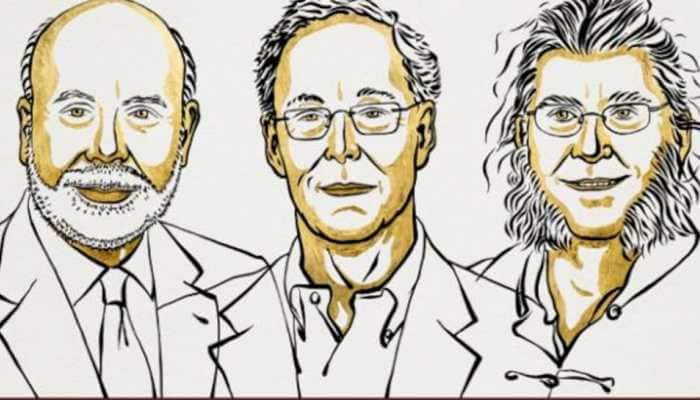
For their work on banking and financial crises, Ben S. Bernanke, Douglas W. Diamond, and Philip H. Dybvig were jointly given the Nobel Prize in Economics- 2022, also known as the Sveriges Riksbank Prize in Economic Sciences in Memory of Alfred Nobel.
The works done by Bernanke, Diamond and Dybvig were ‘crucial in our understanding of banks
The work of Bernanke, Diamond, and Dybvig, according to the Nobel Committee, was “critical to subsequent research that has advanced our understanding of banks, bank regulation, banking crises, and how financial crises should be managed.”
According to the Nobel Committee, the theoretical frameworks developed by these laureates explain why banks exist, “how their role in society renders them subject to rumours about their impending collapse and how society might minimise this susceptibility.”
Diamond and Dybvig proposed a remedy for bank vulnerability
Two of this year’s three laureates, Diamond and Dybvig, proposed a remedy for bank vulnerability. They said that the government offers deposit insurance as a possible alternative. The Nobel Committee explained the nature of their achievements, which garnered them the prestigious award, in a tweet. “When depositors know that the state has insured their money, they no longer need to hurry to the bank as soon as rumours about a bank run start,” the Nobel Committee said.
Diamond’s writings also demonstrated how crucial a role banks play in society. They serve as a middleman between savers and borrowers, which qualifies them to assess borrowers’ creditworthiness and guarantee that loans are applied to wise investments.
Bernanke demonstrated how failed banks contributed significantly to the 1930s worldwide depression
On the other side, Bernanke employed statistical analysis and historical source research to demonstrate how failed banks contributed significantly to the 1930s worldwide depression, which is regarded as the worst economic disaster to affect the entire world in modern times. His research shows why the effects of the economic crisis in the 1930s had a lasting effect.
According to a news statement from the Nobel Committee, he also demonstrated that the decline in the banking system’s capacity to direct funds toward profitable investments was the primary contributor to the Great Depression of the 1930s.
When the global financial markets were struck by the 2008–2009 financial crisis, Bernanke was in charge of the Federal Reserve, the US central bank.
Between 1969 and 2021, the prize was given 53 times to 89 laureates. Joshua D. Angrist and Guido W. Imbens and David Card received the honour in 2021 for their “methodological contributions to the investigation of causal linkages” and “his empirical contributions to labour economics,” respectively.
